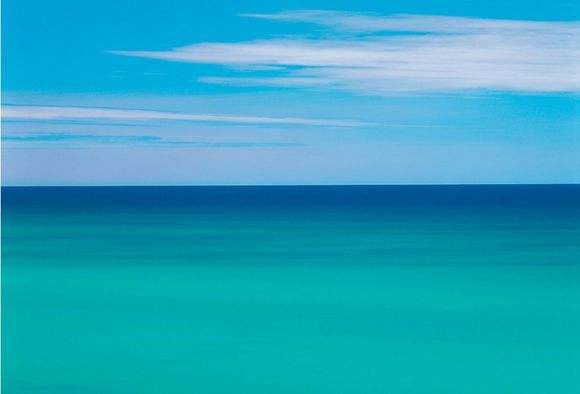(单词翻译:单击)
Almost nothing about it can be used to make reliable predictions about the properties of other liquids and vice versa. If you knew nothing of water and based your assumptions on the behavior of compounds most chemically akin to it—hydrogen selenide or hydrogen sulphide notably—you would expect it to boil at minus 135 degrees Fahrenheit and to be a gas at room temperature.
它的身上几乎没有哪一点可以用来对别的液体的性质进行可靠的推测,反之亦然。要是你对水一无所知,以化学上跟水近似的化合物——尤其是硒化氢或硫化氢——的表现来进行假设,你就会指望水在零下93摄氏度沸腾,在室温下变成气体。
Most liquids when chilled contract by about 10 percent. Water does too, but only down to a point. Once it is within whispering distance of freezing, it begins—perversely, beguilingly, extremely improbably—to expand. By the time it is solid, it is almost a tenth more voluminous than it was before. Because it expands, ice floats on water—"an utterly bizarre property," according to John Gribbin. If it lacked this splendid waywardness, ice would sink, and lakes and oceans would freeze from the bottom up. Without surface ice to hold heat in, the water's warmth would radiate away, leaving it even chillier and creating yet more ice. Soon even the oceans would freeze and almost certainly stay that way for a very long time, probably forever—hardly the conditions to nurture life. Thankfully for us, water seems unaware of the rules of chemistry or laws of physics.
大多数液体会冷缩大约10%。水也是,但只悬冷缩到一定程度。快要达到冰点的时候,水就开始——有悖常情地、很有意思地、不可思议地——膨胀。等它变成固体的时候,它的体积差不多比原先大了10%。由于水结冰的过程是膨胀的,所以冰块浮在水上——用约翰·格里宾的话来说,这是“一种极其古怪的特性的性质”,冰块会往下沉,湖泊和海洋会从底部往上结冰。要是没有表面的冰层保护内部的热量,水的热量会释放出去,使水变得更凉,形成更多的冰块。过不多久,湖泊和海洋也会结冰,而且几乎肯定,海洋会在很长时间里保持那种状态,很可能是永远——这样的条件几乎不会孕育生命。谢天谢地,水似乎不知道化学法则或物理学原理。
Everyone knows that water's chemical formula is H2O, which means that it consists of one largish oxygen atom with two smaller hydrogen atoms attached to it.
大家知道,水的化学分子式是H2O,这意味着,水是由一个较大的氧原子和两个较小的、连着氧原子的氢原子组成的。


